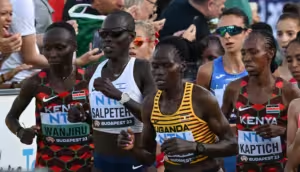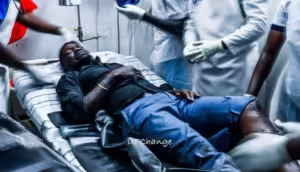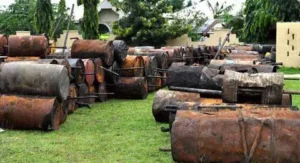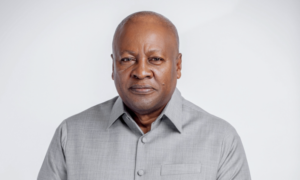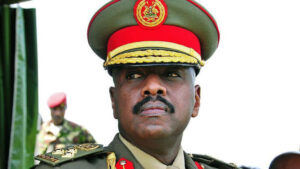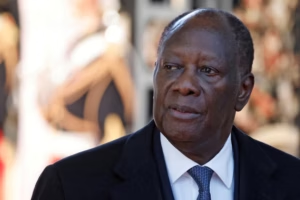On Wednesday, King Charles III met Kenyan veterans of the two world wars, on the second day of his visit to this East African country, where the day before he condemned the “inexcusable” abuses of British colonial rule, but did not ask for forgiveness.
This failure to ask for forgiveness was deplored in particular by the Kenya Human Rights Commission (KHRC), an NGO which had asked the King for an “unconditional and unequivocal public apology”.
“He did not in any way acknowledge the serious concerns that we have raised”, Martin Mavenjina, in charge of justice issues at the KHRC, told AFP, saying that the speech given by the King on Tuesday evening was “nothing exceptional”.
Charles III acknowledged that “odious and unjustifiable acts of violence were committed against Kenyans while they were (…) waging a painful struggle for independence and sovereignty”. “This is inexcusable”, said the 74-year-old monarch.
However, he did not ask for “forgiveness” for the colonial violence, as German President Frank-Walter Steinmeier did on Wednesday during a visit to neighbouring Tanzania.
The period of British colonisation of Kenya, between 1895 and 1963, was marked in particular by the brutal repression of the Mau Mau revolt, one of the bloodiest carried out by the British Empire, which officially claimed more than 10,000 lives between 1952 and 1960.
On Tuesday, Charles laid a wreath at the tomb of the unknown soldier in a garden erected on the site of a camp where people suspected of links with the Mau Mau rebels were detained. It was there in December 1963 that the flag of independent Kenya was raised in place of the British “Union Jack”.
Medals
Continuing the memorial aspect of his trip, on Wednesday the King, together with Queen Camilla, visited a military cemetery in the capital Nairobi to pay tribute to the Africans who died for Great Britain in the two world wars.
The couple laid a wreath in front of graves before meeting Kenyan veterans, some in wheelchairs.
“I hope we can do something special for you,” Charles told one of the veterans at a medal ceremony.
One of the veterans, Samweli Mburia, told AFP that he received a medal under colonial rule, but got rid of it because he “feared reprisals” from independence fighters.
“Many people were not happy that we (…) fought in the war,” said the old man, who served in Egypt, Ethiopia and Myanmar.
Environment
A long-standing supporter of the environment, Charles III visited the Karura Forest on Wednesday.
This 1,000-hectare green setting in the Kenyan capital was championed by his late friend and 2004 Nobel Peace Prize winner Wangari Maathai, founder of the Green Belt Movement, which worked to protect biodiversity in Kenya.
There he met her daughter Wanjira Mathai, as well as Kenyan marathon legend Eliud Kipchoge.
The royal couple are due to leave Nairobi on Thursday for the southern port city of Mombasa, where Charles will visit a nature reserve and meet religious representatives.
